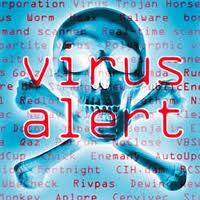 I've been invaded by a virus! "Getting means getting sick and no one in their right mind wants to be sick a virus. Well, now that computers have become our close friends, it's a shock to learn that foreign bodies too can invade with malicious intent. No, your computer does not get a runny nose or diarrhea. This is a disease that prevents your friend functioning properly, sick in bed, unable.
I've been invaded by a virus! "Getting means getting sick and no one in their right mind wants to be sick a virus. Well, now that computers have become our close friends, it's a shock to learn that foreign bodies too can invade with malicious intent. No, your computer does not get a runny nose or diarrhea. This is a disease that prevents your friend functioning properly, sick in bed, unable. Well in nature viruses occur from a power outside of our control. But with computers it's different, humans, mean or ignorant humans are creating these viruses. Why? Usually these are disgruntled people who want to cause havoc on others or companies they believe have hurt for them. In all cases, we must be aware and willing to deal with these debilitating scourges.
There are several approaches to protecting your computer. First, there is the step of awareness. Be aware of how the virus is transmitted. You can catch them from a disk, but in most cases this is because of your messaging system. Check your email address carefully. Be very wary of anything that has an attachment. Make sure it is from and see the title of the e-mail, is this something you expected? Even if it is someone you know, be careful that their computer may be infected and the virus being transmitted without their knowledge.
Then read the cover message, you can not catch the disease without actually opening the message. Look at the name of the attachment, remember viruses are written to entice you. Beware of free and generally all the people you do not know, as well as messages that sound irrelevant usual style of your contact offers. Delete them immediately. Delete, delete, delete. This will ensure a low risk of infection. You can even send the message to the sender without opening it to ensure it is valid.
Now for the heavy protection: Virus scanning and anti-virus software, and spares are readily available and used. Some are free, others are obtained for a very low cost. Most software manufacturers offer subscriptions for updating services, which automatically download protection latest viruses.
There are two main types of virus scanning software: one searches through your entire computer files looking for recognizable viral signatures, the other scans your incoming and outgoing e-mails. Alerts show you when a file should be removed or repaired. If you do get a virus that no software can repair you can send a copy of it to a company like Symantec who will be happy to develop a cure for it.
The main message here is not too worried about your good friend Mrs. PC getting sick or ill. Humans are above the case and they seem much better suited to fixing their technology they are beating the viruses that attack our physical bodies. If only we could beat a human virus and illness as easily as we solve the problem of the computer disease.
